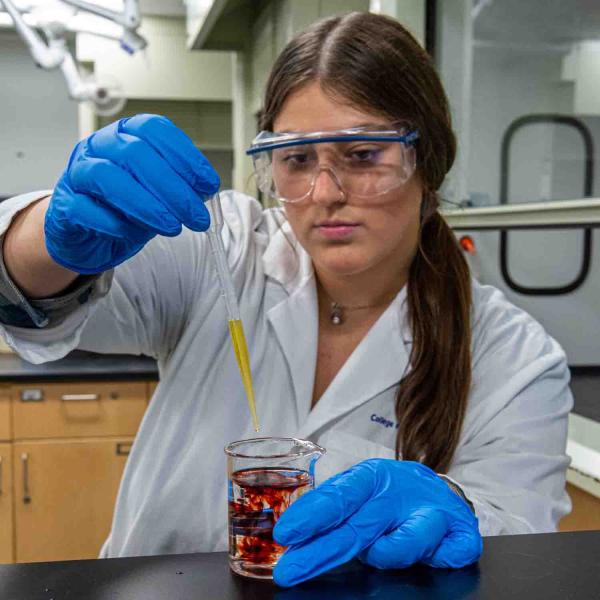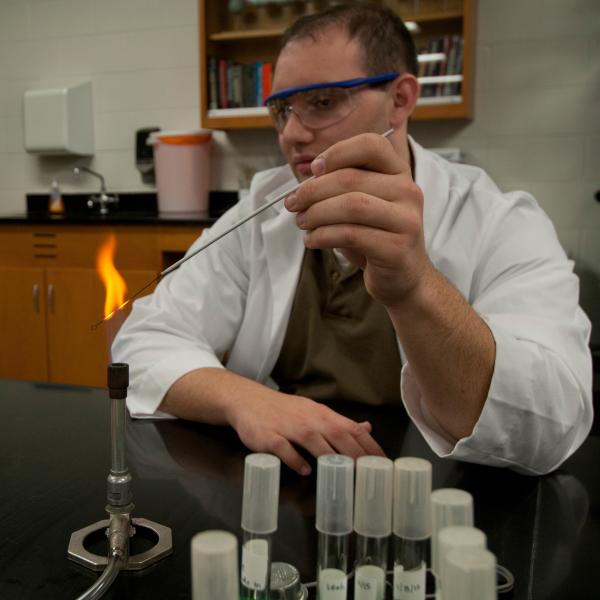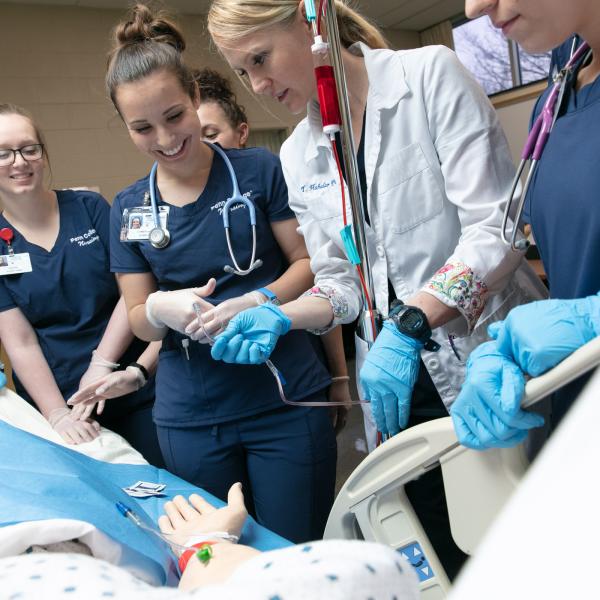Physician Assistant Studies
About this program
Pursue your master’s in Physician Assistant Studies at Penn College and join a tight-knit community determined to make tomorrow better than they found it. As rigorous as it is rewarding, this program will challenge you to solve complex problems, provide care with compassion, and communicate with clarity. Beginning your very first semester, you’ll get hands-on experience in the cadaver lab—dissecting and evaluating the complexities of the human body. From there, you’ll explore everything from pharmacology and cardiology to women’s and children’s health. And thanks to a series of supervised clinical practice experiences in diverse disciplines, you’ll get a preview of possibilities to consider post-graduation.
Interested in the Physician Assistant Studies program but don't yet have a bachelor's degree? Start in the Bachelor of Science in Biomedical Sciences major. This major has the required prerequisites built into it, preparing you for the PA program.
A limited number of seats are available in this program. That’s why we rely on selective admission criteria to select applicants with the highest potential for success. Entry into the program is competitive. The Penn College CASPA application opens on July 1 and closes on January 15 each year.
Tour Schedule
Seeing is believing.
Think Penn College might be a good fit for you? Make plans to visit and discover what hands-on learning is all about.
More tour dates are on the way.
But let's customize a tour for you now. Call, chat, or email for options.
Graduate Personal Tours
Can’t make it to a Graduate Open House? We also offer graduate personal tours on weekdays. These include a preview of the Physician Assistant Studies program, a campus tour, and a meeting with an enrollment counselor.
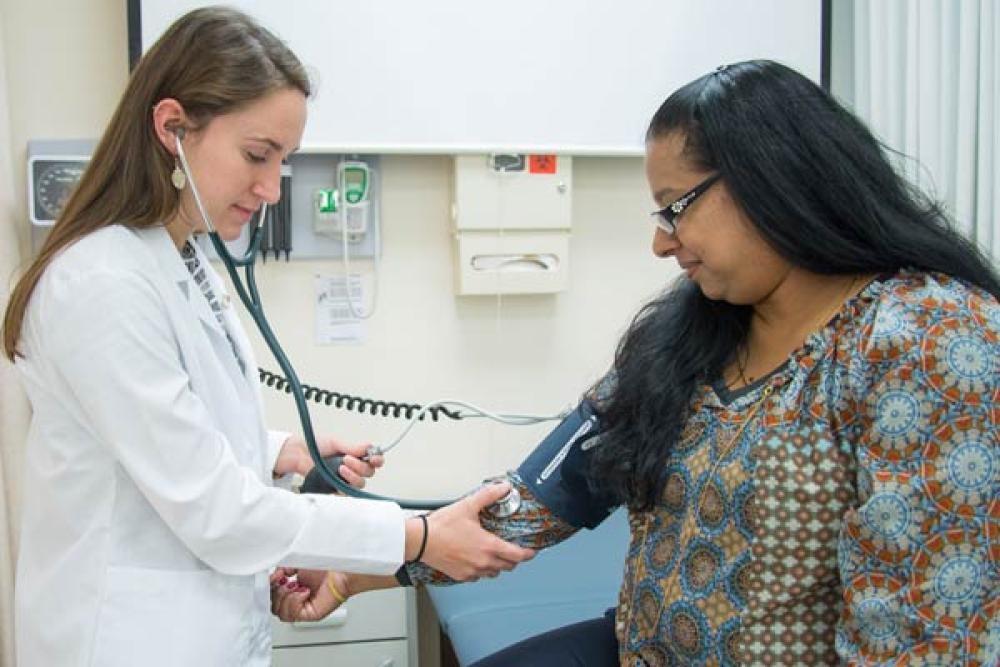
Careers
- Primary care medicine
- Emergency medicine
- Family practice
- Orthopedics
- Cardiovascular surgery
Courses
At Penn College, we believe your educational experience should go beyond specialized skills. Real-world ready means taking a broader approach that builds communication skills, inspires collaboration, and encourages exploration of arts, history, and science.
Specialization requires in-depth knowledge and high-level proficiency. Students learn and apply major-specific concepts, skills, and methods.
- Pathophysiology I (PAS524)
- Pharmacology I (PAS530)
- Patient History & Physical Assessment I (PAS541)
- Clinical Medicine I (PAS550)
- Diagnostic & Procedural Practices I (PAS565)
- Concepts in Physician Assistant Practice (PAS572)
- Human Cadaver Anatomy (PAS575)
- Pathophysiology II (PAS526)
- Cardiology (PAS529)
- Pharmacology II (PAS531)
- Laboratory Medicine I (PAS533)
- Patient History & Physical Assessment II (PAS543)
- Clinical Medicine II (PAS553)
- Professionalism & Ethics in Physician Assistant Practice (PAS561)
- Diagnostic & Procedural Practices II (PAS566)
- Pathophysiology III (PAS527)
- Pharmacology III (PAS532)
- Laboratory Medicine II (PAS534)
- Patient History & Physical Assessment III (PAS544)
- Clinical Medicine III (PAS554)
- Pediatrics (PAS558)
- Diagnostic & Procedural Practices III (PAS567)
- Medical Decision Making (PAS571)
- Principles of Emergency Medicine & General Surgery (PAS574)
- Principles of Women's Health (PAS576)
- PA Clinical Seminar I (PAS610)
- Internal Medicine Clinical Experience (PAS641)
- Elective Clinical Experience (PAS645)
- Pediatrics Clinical Experience (PAS647)
- PA Clinical Seminar II (PAS620)
- Emergency Medicine Clinical Experience (PAS642)
- Behavioral & Mental Health Care Clinical Experience (PAS643)
- Women's Health Clinical Experience (PAS646)
- Family Medicine Clinical Experience (PAS640)
- Surgery Clinical Experience (PAS644)
- Capstone (PAS696)
Next steps...
You're on your way to becoming a tomorrow maker.

Student Experience
“My current experience is, in part, a credit and tribute to the foundation I received as a student of the Physician Assistant Program at Penn College. This credit includes the program director and faculty, along with my classmates, who were gracious and understanding in relation to my experience as an Operation Iraqi Freedom veteran, and my continued service in the Army National Guard. I have built a career I will forever cherish.”
Terry Cropf
Chief Advanced Practitioner, Neuroscience Institute, Geisinger Health System
Industry Partners
Work with experts to become an expert
Penn College's strong partnerships impact every step of your journey – from your first day in the classroom and labs, to career placement (oftentimes before graduation) and beyond.

Career Fair Connections
Penn College graduates are in high demand. Employer participation at the Career Fair is proof. Attracting 400+ organizations, this popular event is hosted twice per year and introduces students to all types of businesses from startups to Fortune 500 companies.
Related Programs
Follow your passion
Student Life
Lead and put your skills to the test
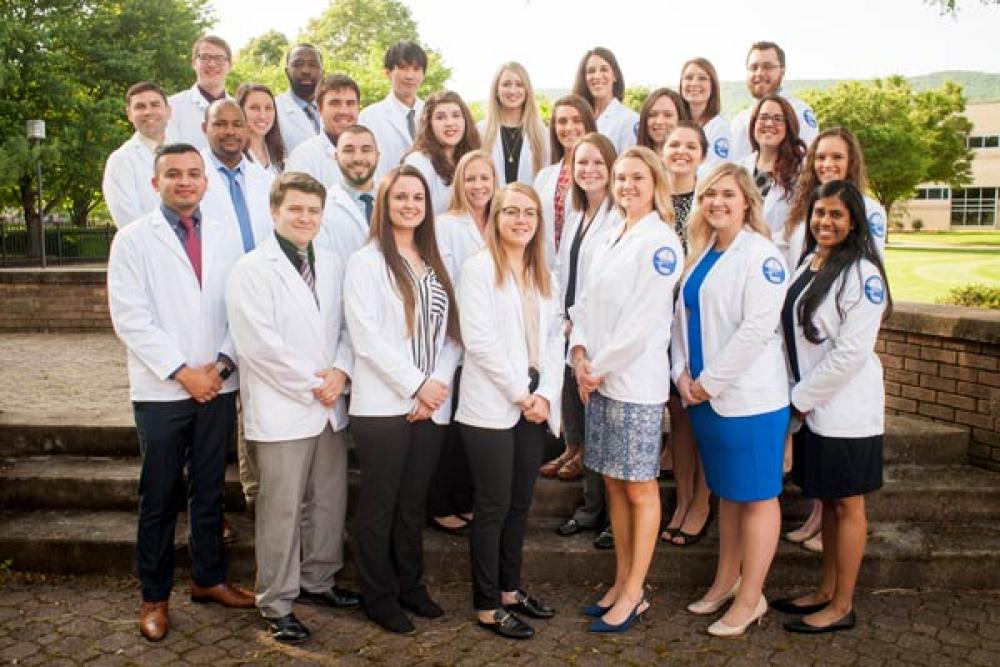
Physician Assistant Club (PA Club)
Pre-PA students are encouraged to join the PA Club. All PA major students are expected to participate in PA Club activities and strongly encouraged to join the state and national PA societies – PSPA and SAAAPA.

Student Organizations at Penn College
Your college experience is about more than the classroom. Join one of 65+ clubs and organizations, or create your own.
Penn College News
Monday, October 7, 2024
Physician assistant program applauds students during national PA Week
Tuesday, May 28, 2024
Physician assistant students complete clinical rotations in Peru
Tuesday, April 30, 2024
Students share Dominican meal, insight before traveling

Study Abroad
Gain global experience
Physician Assistant students recently completed clinical rotations in Peru.
Clinical Experience
Your knowledge in practice
Students will spend their last year of study on clinical rotation, completing seven core rotations (family medicine, internal medicine, emergency medicine, behavioral and mental health care, surgery, women's health, and pediatrics) as well as an elective rotation, allowing students to explore a sub-specialty that aligns with their interests. Clinical rotations are coordinated by the PA program, and students are never required to provide or solicit clinical sites or preceptors.

Accreditation
The Accreditation Review Commission on Education for the Physician Assistant (ARC-PA) has granted Accreditation-Continued status to the Pennsylvania College of Technology Physician Assistant Program sponsored by Pennsylvania College of Technology. Accreditation-Continued is an accreditation status granted when a currently accredited program is in compliance with the ARC-PA Standards.
Accreditation remains in effect until the program closes or withdraws from the accreditation process or until accreditation is withdrawn for failure to comply with the Standards. The approximate date for the next validation review of the program by the ARC-PA will be September 2027. The review date is contingent upon continued compliance with the Accreditation Standards and ARC-PA policy. The program's accreditation history can be viewed on the ARC-PA website at http://www.arc-pa.org/accreditation-history-penn-college-of-tech/ .
View Physician Assistant Studies (M.S.) Accreditation & Outcomes Information
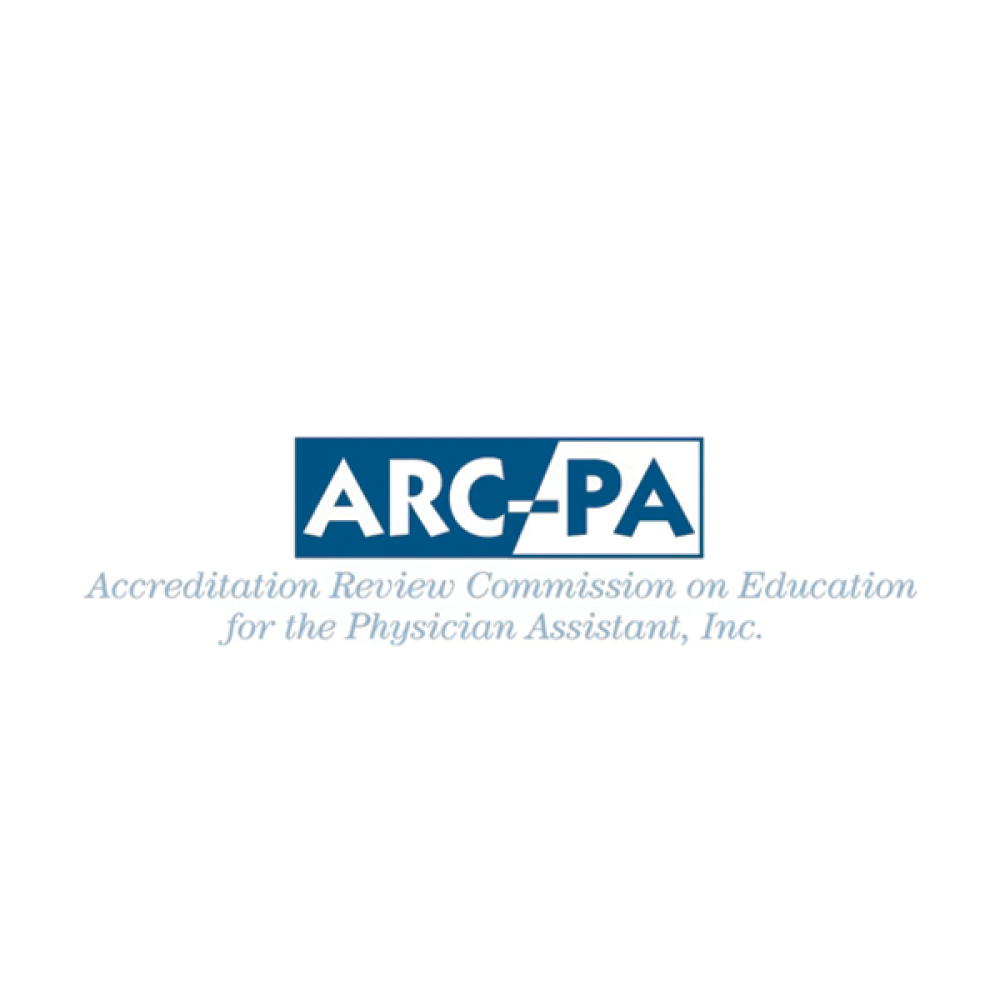
More Information
The Accreditation Review Commission on Education for the Physician Assistant (ARC-PA) has granted Accreditation-Continued status to the Pennsylvania College of Technology Physician Assistant Program sponsored by Pennsylvania College of Technology. Accreditation-Continued is an accreditation status granted when a currently accredited program is in compliance with the ARC-PA Standards.
Accreditation remains in effect until the program closes or withdraws from the accreditation process or until accreditation is withdrawn for failure to comply with the Standards. The approximate date for the next validation review of the program by the ARC-PA will be September 2027. The review date is contingent upon continued compliance with the Accreditation Standards and ARC-PA policy. The program's accreditation history can be viewed on the ARC-PA website at http://www.arcpa.org/accreditation-history-penn-college-of-tech/
National Commission on Certification of Physician Assistants (NCCPA) Pass Rates
The "NCCPA Physician Assistant National Certifying Examination (PANCE) Exam Performance Summary Report Last 5 Years" compares the PANCE pass rates for the five most recent cohorts of Penn College PA Program graduates to the respective national average.
See results .
Anyone desiring entrance into this major must first gain admission to Penn College by applying through the Centralized Application Service for Physician Assistants (CASPA ). Acceptance into this selective admission major is based upon additional requirements beyond College admission. Details are available on the Selective Admission Criteria and Process webpage.
The grading scale in this program for all PAS courses will be as follows:
A = 90-100
B = 80-89.99
C = 75 – 79.99
F = 74.99 and below – student has not met minimal requirements to pass.
Grades are not rounded. Students must maintain a minimum graduation GPA of 2.0
Please refer to the Physician Assistant Studies program manual for additional in-program academic progression requirements.
Alternative Credit refers to academic credits earned through means other than traditional college course completion, including: credit by exam, articulation, proof of competency gained in high school, work/life experience, and advanced placement.
Visit the Alternative Credit Options page for requirements and procedures and for information on credit through Advanced Placement.
The Penn College PA Program does not award advanced standing for any physician assistant professional phase coursework completed at another PA program.
Students enrolled in the Pre-PA Program or the PA Program cannot apply for work study jobs in the program.
- Program Review Executive Summary
- Students must meet Technical Standards for the Physician Assistant established by the Physician Assistant Program, as well as health and safety requirements including, but not limited to, immunizations (MMR, hepatitis B, varicella, tetanus, diphtheria, pertussis, annual influenza vaccination, PPD), medical examination, 10 panel drug screen, CPR certification, and background clearances as established by clinical affiliation agreements.
- Physician Assistant program goals
- ARC-PA Student Attrition Table
The physician assistant program at Pennsylvania College of Technology has determined that its curriculum meets the state educational requirements for licensure in all 50 states secondary to its accreditation by the Accreditation Review Commission on Education for the Physician Assistant (ARC-PA). This determination is based on the following statement from the Physician Assistant Education Association (https://paeaonline.org/alerts/department-of-education-professional-licensure-disclosure-regulation/ ): "As of July 2020, all 50 states require graduation from an ARC-PA accredited program and certification following successful completion of the PANCE as conditions for initial PA licensure. By virtue of ARC accreditation, PA programs offer a curriculum necessary for licensure in all 50 states....For a complete summary of initial licensure requirements in all 50 states, please click here https://www.aapa.org/download/19739/ ."



